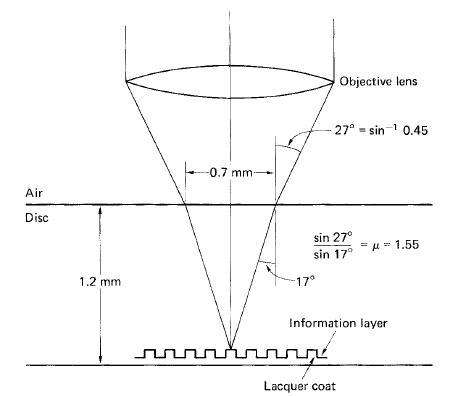S.P.KRISHNA
Active Member
Why there is a caution not to play scratched disks on the players . Will it effect the performance of the player ?
Thanks
Thanks
Scratches on the disk cause the laser to go crazy. In trying to read the data on a scratched disk the laser has to frantically move up and down, which is why you get those alarming sounds coming from the player when it gets "hung".
TIP: apply a small amount of Colgate toothpaste on the scratched portion. It really works.
I much prefer Ayrurvedic toothpaste for cure - totally herbal without grounded animal bones for calcium and babool - I heard its good for red lasers. Meshwak is good for blue lasers.
nice humar, enjoy my dear friends.it is better to apply a small amout of mouthwash after brushing the disc.
:lol::lol::lol::lol::lol:
Guys..Please add some smileys to your suggestions.Otherwise some may follow them seriously....
What does colgate toothpaste do to lasers? It will diffuse them further right? How will it work to improve laser pickup?
I much prefer Ayrurvedic toothpaste for cure - totally herbal without grounded animal bones for calcium and babool - I heard its good for red lasers. Meshwak is good for blue lasers.
Regards
I can't explain the remedy, but it seriously works. And no, Ayurvedic toothpaste will not work because it does not contain baking soda...
There are more things in heaven and earth, Horatio,
Than are dreamt of in your philosophy.
HiWhy there is a caution not to play scratched disks on the players . Will it effect the performance of the player ?
Thanks
Actually prospective double-blind randomized placebo-controlled clinical trials on mice has proven the efficacy of meswak and babool in improving the focus and tracking of blue and red lasers. 80% of mice reported improved pace, timing and rhythm in SQ with fewer than 1% reporting no improvement at all. Side-effects involve only minor rib-tickling sensation, appearance of lunacy and potential embarrassment in public ...
hyeah:

actually prospective double-blind randomized placebo-controlled clinical trials on mice has proven the efficacy of meswak and babool in improving the focus and tracking of blue and red lasers. 80% of mice reported improved pace, timing and rhythm in sq with fewer than 1% reporting no improvement at all. Side-effects involve only minor rib-tickling sensation, appearance of lunacy and potential embarrassment in public ...
Take that <paff>!hyeah:
Cheers
My question is not properly answered .Will it effect the adjustment of laser beam as I was told that there will be a shift of the optical Axis of the beam as it gets Jammed by moving forward & backward while reading a scratched disk. Is it true? If it is true then how to identify this.
Regards.
actually prospective double-blind randomized placebo-controlled clinical trials on idiots has proven the efficacy of meswak and babool in improving the focus and tracking of dingbats. 80% of dumbasses reported improved pace, timing and rhythm in sq with fewer than 1% reporting no improvement at all. Side-effects involve only rib-tickling sensation, appearance of lunacy and potential embarrassment in public ...
You are so clever!! My .. what an intelligent being !!shredder; said:ignorance is bliss

gobble/shredder: I think lets leave personal remarks and focus on the topic. Thanks
How to Fix a Scratched CD - wikiHow
gobble/shredder: I think lets leave personal remarks and focus on the topic. Thanks
How to Fix a Scratched CD - wikiHow
Thanks for posting the link. I think it will bear out what I have been saying all along.

